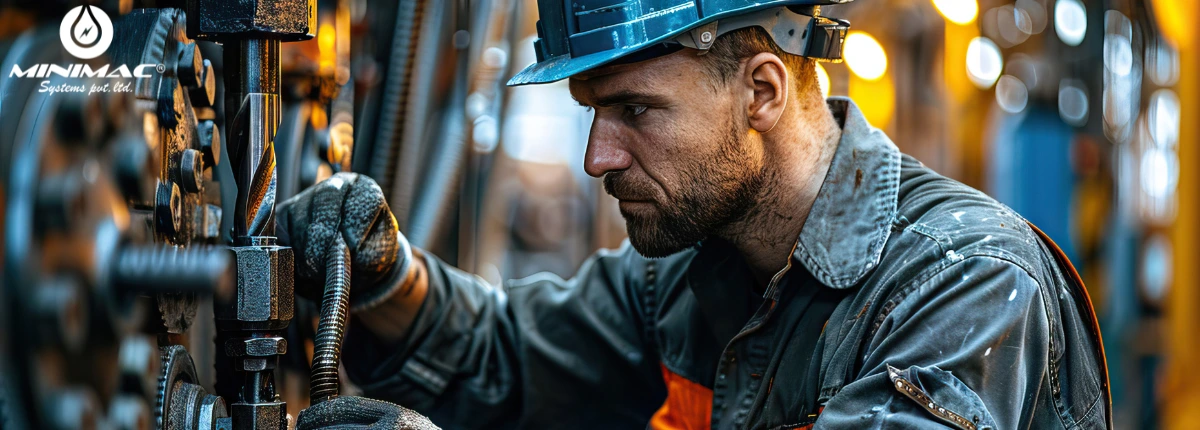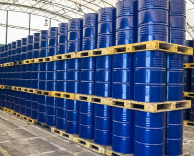The Role of Filtration Systems in Keeping Clean Oil
Introduction
Ever wonder why your equipment ages well? So what keeps it so indestructible?
Keep the Engine Running. In factories and plants, machines are on the floor just to keep everything going. But in use, oil used constantly can become dirty with dirt and abrasives, increasing the likelihood of breakdowns or sudden stoppage of the machinery.
This is where “filtration systems” come in.
Oil filtration systems based on stage-wise filtration are used for the separation of solid particles from lubricating oil and hydraulic oil to extend the life of the machines and to minimize the cost.

Importance of clean oil:
It can fail without clean oil and the resultant loss in production will cost a lot of output to the manufacturing company. Clean oil is also critical for the machines to operate efficiently and to keep production up and running. Let's explore it.
Better Performance: Clean lubricating oil allows for optimum machine performance.
Longer Lasting Equipment: In an oil-free atmosphere, there are fewer long-wearing parts, resulting in equipment that lasts longer.
Savings in Maintenance Expense: Due to cleaner oil, repairs are conducted less often and this saves money ultimately, that is, the frequency of maintenance reduces.
More Productive: Lower chance of failures results in less downtime and a more consistent, predictable workflow.
Types of Oil Contamination
The three main ways it can become contaminated are:
- Foreign Particles: Dust, dirt, iron chips, etc., may enter the oil.
- Wet and oil: in the water appear oil pollution, oil rust, etc.
- Chemical Contamination:Acids and sludge start to develop, which may hinder oil quality.
For More Information About Oil Filtration-Click Here.
Basics of filtration systems:
Just make sure that we are using an oil filtering machine for two different methods of filtration: mechanical and chemical. There is a mechanism and an application for each type.
1) Mechanical Filtration:
Mechanical Filter Mechanical oil filter uses the physical barriers to remove the contaminants solely from the oil. These can range from mesh screens to paper filters.
” When oil is run through them, particles are trapped via mechanical filters. Its particle removal size is determined by the filter media's pore size.
Common Applications
- Industrial machinery
- Hydraulic systems
- Turbine Systems
- Gear oil
- Water Glycol
Benefits
- Simple to use and maintain
- Great for large particles
- Cost-effective
2) Chemical Filtration
Chemical Filtration Chemical filtration is the process of removing oil in a similar fashion to the physical and mechanical removal of contaminants, but by using chemicals instead. This can be anything from a superficial reaction, such as adsorption onto a material.
Filters are mostly activated carbon and contain adsorbents that keep the contaminants in place.
Common Applications
- Filter the waste cooking oil in the food industry.
- Pharmaceuticals
- Fine chemical production
Benefits
- Eliminates fine particles and dissolved chemicals
- Formulated to Remove Odours and Colours
Advantages of Advanced Lubrication:
High-quality filtration systems enable advanced lubrication, which provides several advantages:
- Extending equipment life: Clean oil reduces wear, extending equipment life.
- More Breakdowns: More breakdowns lead to less reliability, more downtime and more inefficiency.
- Savings: People who own or operate a broken-down thing multiple times less and therefore cost them much less to maintain/repair it that frequently.
- Environmentally Friendly: This cleaner oil also helps in lessening industrial waste and pollution.
Maintenance and Servicing of Filtration Systems
Maintenance is Regular service, maintenance is required for your filters to work properly.

- Check Often - A regular check can ensure that you are notified about the problem and can take preventive measures to solve it on the spot, rather than getting the problem and becoming unaware of it becomes a big issue.
- Filter change indicator: for optimal performance, also prevents clogging due to filter change.
- System Cleanliness: Any and all of the filtration system MUST remain clean in order for it to work in optimal condition, which offers a longer life span.
Selecting the Appropriate Type of Filter System
Choosing the best filter system requires addressing several issues:
- Type of Equipment: Each machinery has its own filtration needs.
- Nature of the work: The nature of operations can also affect the type of pollutants that are present.
- Specific Contaminants: Knowing which contaminants you have in your oil will help you to pick out the best filtration system for you.
A little expedient consultation and assessment, and you will make the best call.
Conclusion
Filtration is a very important component of the life and performance of equipment within the manufacturing process. A clean oil system not only saves you money in preventive maintenance costs; it also means less wear and tear on your system, longer life, and less downtime. Ah, with a little help, you get through timely, appropriate maintenance. Once you have the proper filtration solution in place, you'll reap the benefits and operate trouble-free, each and every time.
Learn more about our services and industry insights by visiting our official LinkedIn page:Minimac Systems





